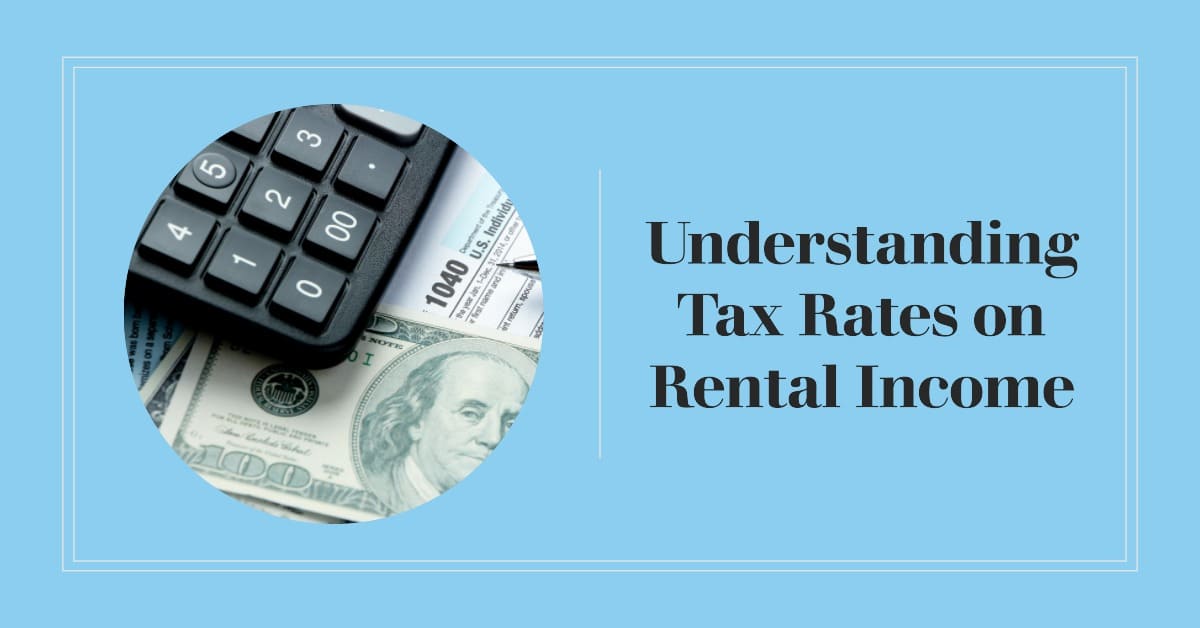If you own a rental property in the U.S., you may be wondering how much tax you have to pay on your rental income. In this blog post, we will answer some common questions about tax on rental income and provide some tips to reduce your tax liability.
Table of Contents
What is the tax rate on rental income in the U.S.?
The tax rate on rental income in the U.S. depends on your marginal tax bracket, which is determined by your total taxable income and your filing status. Rental income is taxed as ordinary income, which means it is subject to the same federal income tax rates as your wages, salaries, interest, dividends, and other sources of income.
The federal income tax rates for 2023 range from 10% to 37%, depending on your income level and filing status. For example, if you are a single filer with a taxable income of $50,000 in 2023, you will pay 22% tax on your rental income. If you are married filing jointly with a taxable income of $300,000 in 2023, you will pay 24% tax on your rental income.
You can find the federal income tax brackets for 2023 and previous years here.
Is rental income taxed as ordinary income?
Yes, rental income is taxed as ordinary income at the federal level. However, you may also have to pay state and local taxes on your rental income, depending on where your property is located and where you live. Some states have no income tax, while others have progressive or flat income tax rates. You can find out more about state and local taxes on rental income here.
Does the tax rate on rental income vary from state to state?
Yes, the tax rate on rental income varies from state to state, as well as from city to city and county to county. Some states have no income tax, while others have progressive or flat income tax rates. Some states also have special rules or exemptions for rental income, such as deductions, credits, or exclusions.
For example, California has a progressive income tax system with rates ranging from 1% to 13.3%, depending on your income level and filing status. However, California also allows you to deduct certain expenses related to your rental property, such as mortgage interest, property taxes, depreciation, repairs, maintenance, insurance, and management fees. You can find out more about California's tax rules for rental income here.
What is the tax rate on rental income in California?
The tax rate on rental income in California depends on your marginal tax bracket, which is determined by your total taxable income and your filing status. California has a progressive income tax system with rates ranging from 1% to 13.3%, depending on your income level and filing status.
For example, if you are a single filer with a taxable income of $50,000 in 2023, you will pay 6% state tax on your rental income. If you are married and filing jointly with a taxable income of $300,000 in 2023, you will pay 9.3% state tax on your rental income.
You can find the California state income tax brackets for 2023 and previous years here.
How can I reduce my tax liability on rental income?
There are several ways to reduce your tax liability on rental income, such as:
- Deducting your rental expenses: You can deduct any ordinary and necessary expenses related to your rental property, such as mortgage interest, property taxes, depreciation, repairs, maintenance, insurance, management fees, advertising, utilities, travel, legal fees, and accounting fees. However, you can only deduct expenses that are incurred for the production of rental income or for the maintenance of the property. You cannot deduct personal expenses or capital improvements that increase the value or extend the life of the property.
- Claiming depreciation: You can claim depreciation on your rental property as a non-cash expense that reduces your taxable income. Depreciation is based on the cost or basis of the property and its useful life. Generally, residential rental properties are depreciated over 27.5 years using the straight-line method. However, there are special rules and exceptions for different types of properties and assets.
- Using a pass-through entity: You can use a pass-through entity such as a limited liability company (LLC) or an S corporation to own and operate your rental property. A pass-through entity does not pay corporate taxes; instead, it passes through its profits and losses to its owners or shareholders who report them on their personal tax returns. This way, you can avoid double taxation and benefit from lower tax rates and deductions.
- Taking advantage of tax credits: You can take advantage of tax credits that are available for rental property owners, such as the low-income housing credit, the rehabilitation credit, the energy credit, and the foreign tax credit. Tax credits are more valuable than deductions because they directly reduce your tax liability dollar for dollar. However, tax credits are subject to limitations and eligibility requirements.
- Deferring or avoiding capital gains tax: You can defer or avoid capital gains tax when you sell your rental property by using strategies such as a 1031 exchange, a qualified opportunity fund, or a charitable remainder trust. These strategies allow you to reinvest your proceeds from the sale into another property or investment without recognizing the gain or paying the tax immediately. However, these strategies have complex rules and conditions that you must follow.
Conclusion
Tax on rental income is a complex topic that requires careful planning and recordkeeping. You should consult a qualified tax professional to help you understand your tax situation and optimize your tax strategy. By doing so, you can maximize your returns and minimize your risks as a rental property owner.




